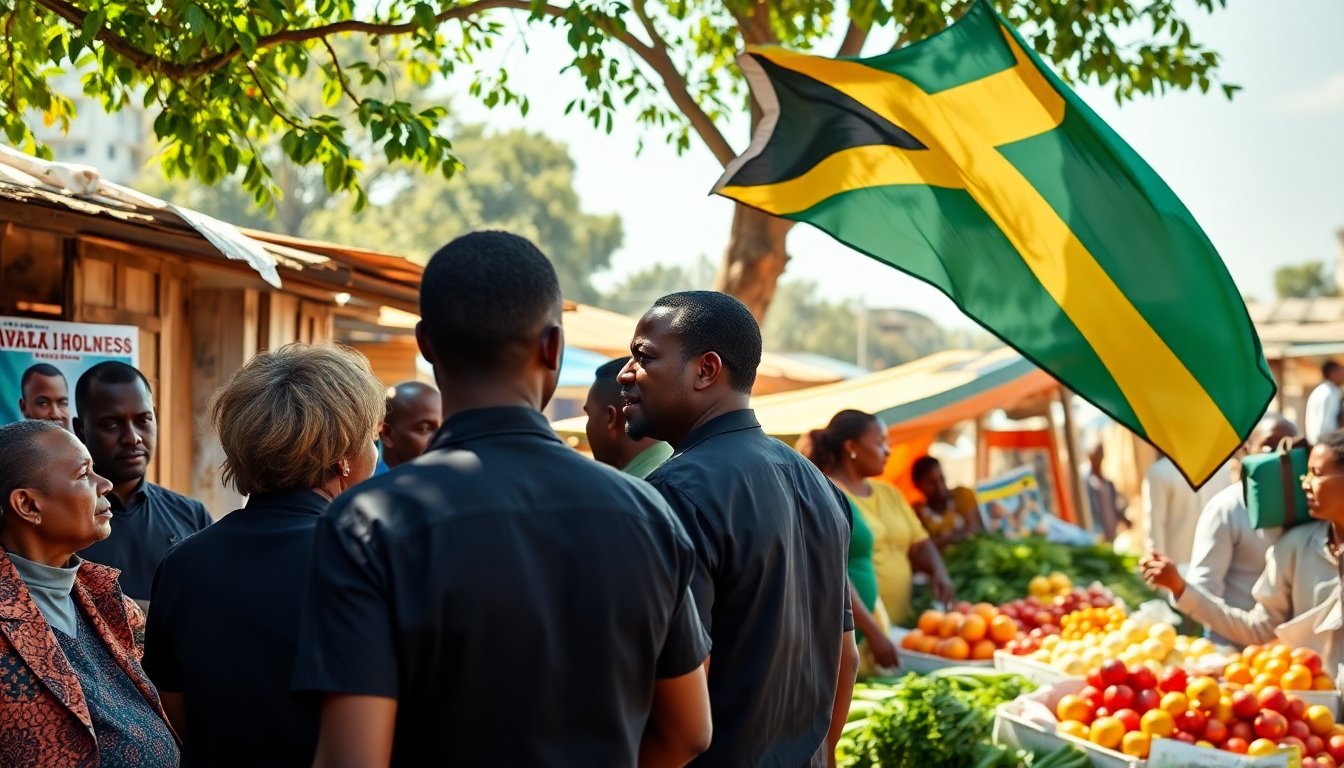Table of Contents
The recent parliamentary elections in Jamaica have resulted in a significant shift in the political landscape, with Prime Minister Andrew Holness securing a historic third term. This electoral victory occurs amidst economic concerns, low voter turnout, and allegations of corruption. The Jamaica Labour Party (JLP) emerged victorious, winning a majority in the 63-seat parliament. This article will examine the implications of Holness’ win, the challenges facing his administration, and the broader socio-economic context of Jamaica.
Election Results and Political Dynamics
According to preliminary results, Holness’ JLP claimed at least 34 seats, while the opposition, the People’s National Party (PNP), secured 29 seats. The election was marked by a notable decline in voter participation, with turnout recorded at just 38.8 percent, a slight improvement from the previous election held during the pandemic. This low engagement raises questions about the democratic health of Jamaica and the effectiveness of the political discourse.
In his victory speech, Holness emphasized the significance of this win for the people of Jamaica, framing it as a mandate to continue his government’s policies. Mark Golding, the leader of the PNP, conceded defeat, expressing disappointment while acknowledging the outcome. The election results reflect a complex interplay of public sentiment, where issues of inequality and economic hardship have dominated discussions.
Challenges Ahead for the Holness Administration
As Holness begins this new term, he faces a myriad of challenges. The Jamaican economy is grappling with rising inflation and socio-economic disparities. His administration has highlighted significant achievements, including a 43 percent drop in homicides this year, attributed to increased security measures and firearm seizures. However, the opposition has criticized the government for mismanagement and has called for reforms aimed at alleviating the financial burdens on working-class Jamaicans.
Holness has pledged to double the minimum wage, a move designed to address financial pressures on the populace. Nonetheless, the effectiveness of such measures will depend on the government’s ability to implement them without exacerbating existing economic challenges. The PNP’s proposed policies, including raising the income tax threshold, underscore the ongoing debate about fiscal equity and the need for sustainable economic solutions.
Looking Forward: The Future of Jamaica Under Holness
The road ahead for Holness and the JLP is fraught with challenges, yet it also presents opportunities for meaningful change. As the prime minister prepares to appoint senators and set the legislative agenda, the focus will likely remain on economic recovery and addressing public concerns about governance and transparency. The upcoming term will test Holness’ ability to balance the expectations of his supporters with the pressing needs of the Jamaican populace.
Moreover, the decline in voter turnout signals a potential disconnect between the electorate and their representatives. Engaging citizens in the political process will be crucial for the JLP to maintain its mandate. Holness must ensure that his policies resonate with the broader public, fostering an inclusive environment that promotes participation and accountability.


